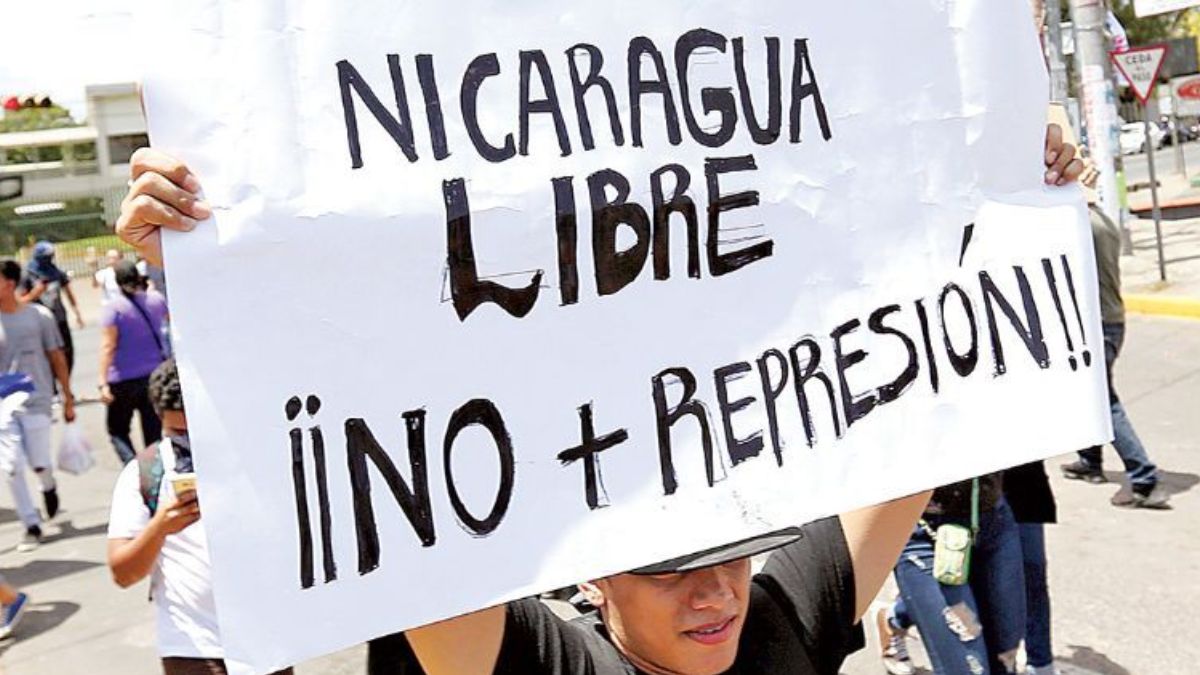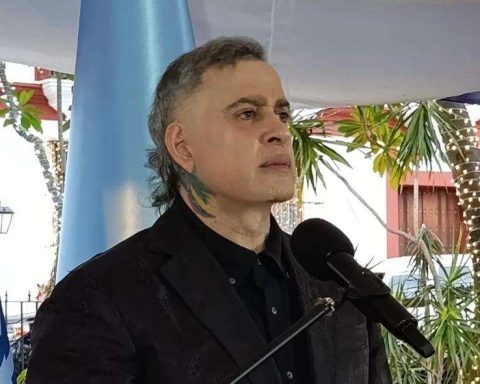Within the framework of the sixth anniversary of the civic protests of 2018, the Inter-American Legal Assistance Center on Human Rights (CALIDH) released a statement to denounce that the situation that Nicaragua is experiencing is the most serious in the Western Hemisphere, due to the intense attack that the dictatorship of Daniel Ortega and Rosario Murillo has perpetrated against the population.
“Six years after the beginning of the civil explosion, the State of Nicaragua continues to attack the population, adding new crimes against humanity year after year, with the aim of destroying every organized space and every opposition voice or perceived as such,” he details. The report.
Related news: Calidh reports that 2023 was a year of “extreme violence and revenge” by the Ortega regime against Nicaraguans
Calidh stated that, to this day, the country “is in an accelerated persecution of specific groups in society as a whole, without the widespread and systematic attack having softened or given way, because the government resorts to terrorism to paralyze morally to the population.
Faced with this panorama of repression, the humanitarian organization proposes that the State must be judged because “it is a permanent entity that should exercise force monopoly with the increasing limitations that human rights treaties, the principles and norms of unmodifiable international law impose on it.” .
The international organization reiterated that “all acts committed by state structures generate a responsibility equivalent to a sentence, when a court or organization deals with the analysis of their inadequate actions far from their obligations. “Crimes against humanity are also perpetrated by the State.”
In this sense, the report highlighted that the Nicaraguan regime “is currently subject to various bodies to determine its responsibility, especially through individual cases before the Inter-American Commission on Human Rights (IACHR).” However, Calidh highlighted that “a crime against humanity is always a serious violation of rights, however in the first case people respond individually before national, foreign or international criminal courts.”
«Just a year ago, the Center proposed thirty measures of transitional justice in which some models of judgment were explored. In this report we continue to think about these criminal processes, where we anticipate scenarios of impunity in the context of those responsible being brought before the domestic courts,” the organization stated.
The organization said that criminals “must be judged for conduct committed for crimes against humanity, because these and only these are capable of allowing judges to carry out future legal analyzes in their sentences in accordance with the immense offensive nature against the victims, the society and humanity as a whole.
Calidh’s proposals
The report proposes “a legal model to prevent the prosecution from being diluted into scattered crimes and gaps in impunity.” «No proposal in this document is intended to be definitive or a standard. It is the unpredictable context and the civic struggle to restore democracy in Nicaragua that will indicate how to proceed. However, neither justice, nor truth nor memory will be left to the chance of time. There will be no impunity. “Never again!” adds the organization.
The Center deliberated that one of the “current options for judging the State are those that can be activated by victims or their families through complaints of human rights violations”, as well as “those that can only be activated by the states of the International Court of Justice ( ICJ) on the basis of the International Covenant on Civil and Political Rights (1966) and the Convention on the Reduction of Statelessness (1961).”
“These treaties contemplate that in the event of disputes in the application and interpretation of a treaty (violation of obligations), states with respect to another State can submit the case to the Court,” said Calidh.
Related news: Calidh will continue its work of supporting the victims of the dictatorship despite the threats
The humanitarian organization mentioned that “in the event that it is decided to try those responsible in domestic jurisdiction in the absence of the current contemplation of crimes in Nicaraguan criminal law (and to avoid the nullum crime, sine lege argument), the Convention will be applied on the imprescriptibility of crimes against humanity and war crimes as a special criminal law.
This convention states that these crimes will be punished both in times of war and peace in accordance with the Statute of the Nuremberg Tribunal, which identifies the following crimes as behaviors that constitute this crime:
«Murder, extermination, slavery, deportation and any other inhuman act against the civilian population, or persecution on religious, racial or political grounds, when such acts or persecutions are done in connection with any crime against peace or in any war crime ( article 6, paragraph 4),” the Center warned.

















